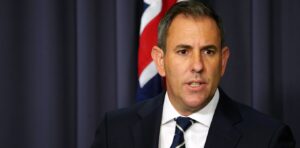
In a groundbreaking move, general practitioners (GPs) in Queensland will soon have the authority to diagnose attention deficit hyperactivity disorder (ADHD) in adults and prescribe necessary medication. This initiative, set to commence on December 1, marks an Australian first, expanding the current capabilities of specialist GPs who have been limited to prescribing ADHD medication for patients aged 4 to 18.
ADHD, a condition affecting an estimated 6 to 10 percent of children and adolescents and 2 to 6 percent of adults in Australia, will now be more accessible for diagnosis and treatment in Queensland. Queensland Health Minister Tim Nicholls emphasized that the change aims to make healthcare more accessible and affordable. “This is a nation-leading first, allowing specialist GPs to diagnose and prescribe for patients over the age of 18 no matter where they are throughout the state,” Nicholls stated.
National Context and Comparisons
This development follows similar changes across Australia. In June, South Australia announced that GPs with specialist training would be permitted to diagnose and treat ADHD. Meanwhile, Western Australia is preparing to train 65 GPs to diagnose and prescribe medication, albeit only for children older than 10. New South Wales and the ACT are also moving towards training doctors for ADHD diagnosis and treatment in children, though age specifics remain undefined.
Cath Hester, council chair of the Royal Australian College of General Practitioners Queensland, expressed confidence in the readiness of Queensland GPs. “Queensland GPs are already well-placed because we have been diagnosing and managing ADHD in children from the ages of 4 to 18,” she explained. “So extending this scope of practice to include the care of adult patients is actually a very natural and very safe progression in the care of these patients who desperately need improved access to services.”
Implications for ADHD Management
Dr. Hester further highlighted that while GPs would have the authority to prescribe medication, ADHD management could also involve a comprehensive approach, including psychological support and behavioral interventions. She noted that GPs would still have the option to refer patients to psychiatrists and specialists when necessary.
Addressing concerns about potential overdiagnosis, Dr. Hester argued that the current risk lies in under-recognition and under-management of the condition. “We know the prevalence for ADHD in the community is up to 10 percent, which is very high, but we know many of these patients, particularly the ones that are at highest risk of having adverse consequences from this medical condition, have trouble accessing appropriate medical care,” she remarked.
Expert Opinions and Forward-Looking Analysis
The Royal Australian and New Zealand College of Psychiatrists has expressed support for the initiative, contingent on adequate training being provided. Brett Emmerson, chair of the college, noted that opinions among psychiatrists vary. Some view the move as a logical step to alleviate waitlists, while others consider ADHD diagnosis a specialized area.
As Queensland prepares to implement this change, the healthcare landscape for ADHD in Australia could see significant shifts. The move represents a proactive approach to addressing the unmet needs of adult patients with ADHD, potentially setting a precedent for other states to follow. The success of this initiative may hinge on the effective training of GPs and the integration of a holistic approach to ADHD management.
With December 1 approaching, all eyes will be on Queensland to observe how this policy impacts patient care and whether it can serve as a model for nationwide adoption. The expansion of GP roles in ADHD diagnosis and treatment could mark a pivotal moment in Australian healthcare, offering new hope for adults seeking timely and effective management of their condition.






